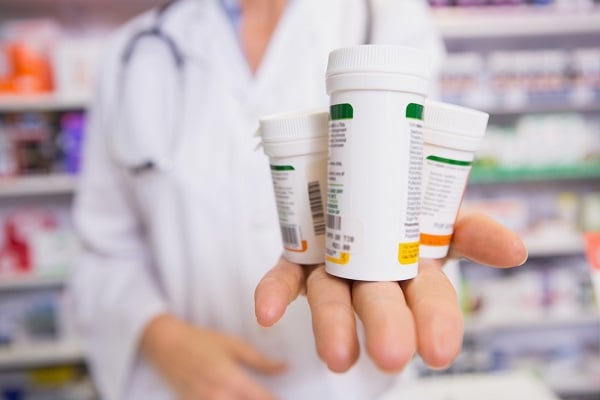 "Americans have the right to know which payment method—insurance or cash—would provide the most savings when purchasing prescription drugs," Senator Susan Collins said of the new bill. (Photo: Shutterstock)
"Americans have the right to know which payment method—insurance or cash—would provide the most savings when purchasing prescription drugs," Senator Susan Collins said of the new bill. (Photo: Shutterstock)
A bill introduced in the Senate by a bipartisan group of lawmakers would ban so-called "gag clauses" that bar pharmacists from proactively telling consumers that it could be cheaper to pay out of pocket for their prescriptions than to use their insurance.
The Hill reports that the clauses are sometimes included in contracts between pharmacies, insurers and companies that manage drug benefits for employers (prescription benefit managers).
Recommended For You
"Insurance is intended to save consumers money," Senator Susan Collins, R-ME, is quoted saying in a statement. Collins adds, "Gag clauses in contracts that prohibit pharmacists from telling patients about the best prescription drug prices do the opposite."
The bill was introduced by Collins, together with senators Claire McCaskill, D-MO, Debbie Stabenow, D-MI, John Barrasso, R-WY and Bill Cassidy, R-LA. It would prohibit insurers and pharmacy benefit managers from restricting a pharmacy's ability to tell customers the difference in price between a prescription purchased with insurance or out of pocket, and would apply to plans offered through the individual market and by private employers.
An example provided by Collins told of a customer who paid $129 for a drug through his insurance when paying out of pocket would only have cost him $18, and said in the report, "Americans have the right to know which payment method—insurance or cash—would provide the most savings when purchasing prescription drugs."
According to a recent study published in the Journal of the American Medical Association that reviewed 9.5 million insurance claims, 23 percent of prescriptions filled through insurance ended up costing more for customers than if they would have paid out of pocket. The overpayments totaled $135 million for 2013, averaging $10.51 per covered member. The study also noted that some pharmacists are contractually prevented from alerting patients when their copay exceeds the drug's out-of-pocket price.
In a second bill, introduced by Barrasso and Cassidy with Sen. Ron Wyden, D-OR, the same protections are sought for individuals covered by Medicare Advantage and Medicare Part D.
The Pharmaceutical Care Management Association, which represents PBMs, claims that the issue has already been addressed in the marketplace. The report quotes its statement saying, "We support the patient always paying the lowest cost at the pharmacy counter, whether it's the cash price or the copay. This is standard industry practice in both Medicare and the commercial sector."
The statement adds, "We would oppose contracting that prohibits drugstores from sharing with patients the cash price they charge for each drug. These rates are set entirely at the discretion of each pharmacy and can vary significantly from drugstore to drugstore. Fortunately, to the degree this issue was ever rooted in more than anecdotal information, it has been addressed in the marketplace."
However, the report points out that a 2016 survey from the National Community Pharmacists Association found that 59 percent of pharmacists surveyed had encountered a gag clause at least 10 times in the last month.
© 2025 ALM Global, LLC, All Rights Reserved. Request academic re-use from www.copyright.com. All other uses, submit a request to [email protected]. For more information visit Asset & Logo Licensing.







